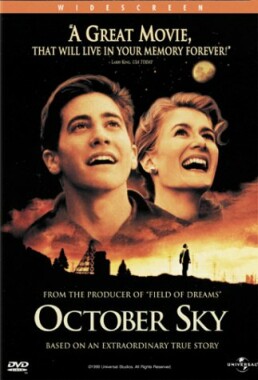Compliance
I don’t believe it. Blind Gloucester in King Lear, describing the naked man he does not know is his own son, says, “I’ the last night’s storm I such a fellow saw/Which made me think a man a worm.” Craig Zobel’s Compliance also has a naked person in it who made me think a man — and a woman too — a worm, which I’ve no doubt was the author’s intention. But a man is not a worm. That is the truth which the careful label fastened on this disgusting movie, “inspired by true events,” obscures with its qualified and, therefore, untrue truth — which, as I say, I don’t believe. For even if something like the events of the movie, or some significant portion of them, happened in real life, there is nothing true about them apart from their bare occurrence. Not if I know anything about the human animal.
Yet, at least among movie people, there are plenty who want to believe the worst of our vermiform nature. Let’s put together a newspaper advertisement for movie featuring all genuine quotations from critics across the land. “. . .This psychological horror movie slithers rapidly from uncomfortable to unspeakable. . .” (New York Times). “. . . This stealth psychological horror film is at once tough to turn away from and, by design, extremely difficult to watch. . .” (Variety). “. . . Without a doubt, the most uncomfortable film experience of my life. . .” (Huffington Post). And these are the positive reviews! Feel like you want to see it yet? On the whole, the critics seem to think you should. As Peter Travers of Rolling Stone put it, “Craig Zobel’s potent and provocative Compliance is torture to sit through. It’s also indispensable filmmaking.”
That seems to me a curious way to put it when it is so obvious that the “torture” is taking place on the screen. The sexual humiliation of the young fast-food worker Becky (Dreama Walker) at the hands of those who should be her friends and protectors resembles the torture of a small animal more than it does anything else, since both Becky and her tormentors are depicted as being deprived of their moral agency and hence of their humanity. And how is this remarkable feat accomplished? By a disembodied voice on the telephone (Pat Healy) claiming to be a policeman. I don’t believe it.
And yet, as I have said, this is supposed to be something that, sort of, really happened. The truth behind it, we are to understand, lies less in the events themselves than in the allegedly scientific truth of the famous experiment at Yale in the 1960s, when the psychologist Stanley Milgram was taken by many to have demonstrated that there is a little (or possibly a lot) of Adolf Eichmann in all of us because of our putatively automatic deference to authority, even when it commands us to do things we know are wrong and cruel. The philosophical implications of that highly dubious conclusion have never been sufficiently explored, let alone those of the bumper-sticker mantra, “Question Authority,” still to be met with on our roads and highways, to which it has helped to give rise. I don’t believe it. What the students in Dr Milgram’s experiment were deferring to was not authority but the implicit contract they had entered into with him to take part, for money, in a kind of game whose rules must have included — and in fact did include — the rule that there could be no real-world consequences to what they did.
The real interest of the experiment lay in the eagerness with which lots of people, and academic psychologists in particular, seem to have been willing to adopt as their own such an appallingly pessimistic view of human nature. The secret (or not so secret) conviction that most of our neighbors are (at best) proto-Nazis while decency lies, if anywhere, only in a few good people like ourselves is one that has proven so remarkably tenacious among America’s liberal faction that a sort of negative image of it has lately been adopted even by some of our conservative brethren. At any rate, some such conviction must be what lies behind Slate’s recommendation of Compliance as “a deeply moral movie about the failure of morality, as grueling to watch as it is necessary.”
See, that’s what I quarrel with. What’s moral, let alone “deeply moral,” about it? What’s “necessary”? It’s necessary, I conclude the critic means, that we get our minds right, and rightly stocked with a lofty moral contempt for the great majority of our fellow creatures — especially those who work in, or eat in, fast food restaurants — from whom we may thus suppose ourselves to be morally distinct. Ann Hornaday of the Washington Post is among the sadly few critics who redeem the profession, in my opinion, by observing that: “Compliance puts its characters and viewers through a perverse, even sadistic, kind of hell, and the audience is entitled to ask toward what end.” I think I can answer that question. The end is to force us to acquiesce, having been beaten about the head with the words “true events,” in the movie’s slander against human nature. In fact, there is nothing necessary about this, any more than there is anything true about it — though you’ve got to wonder what it tells us that so many, at least among the greater community of movie-makers and watchers, are prepared to believe that there is.
Discover more from James Bowman
Subscribe to get the latest posts to your email.







